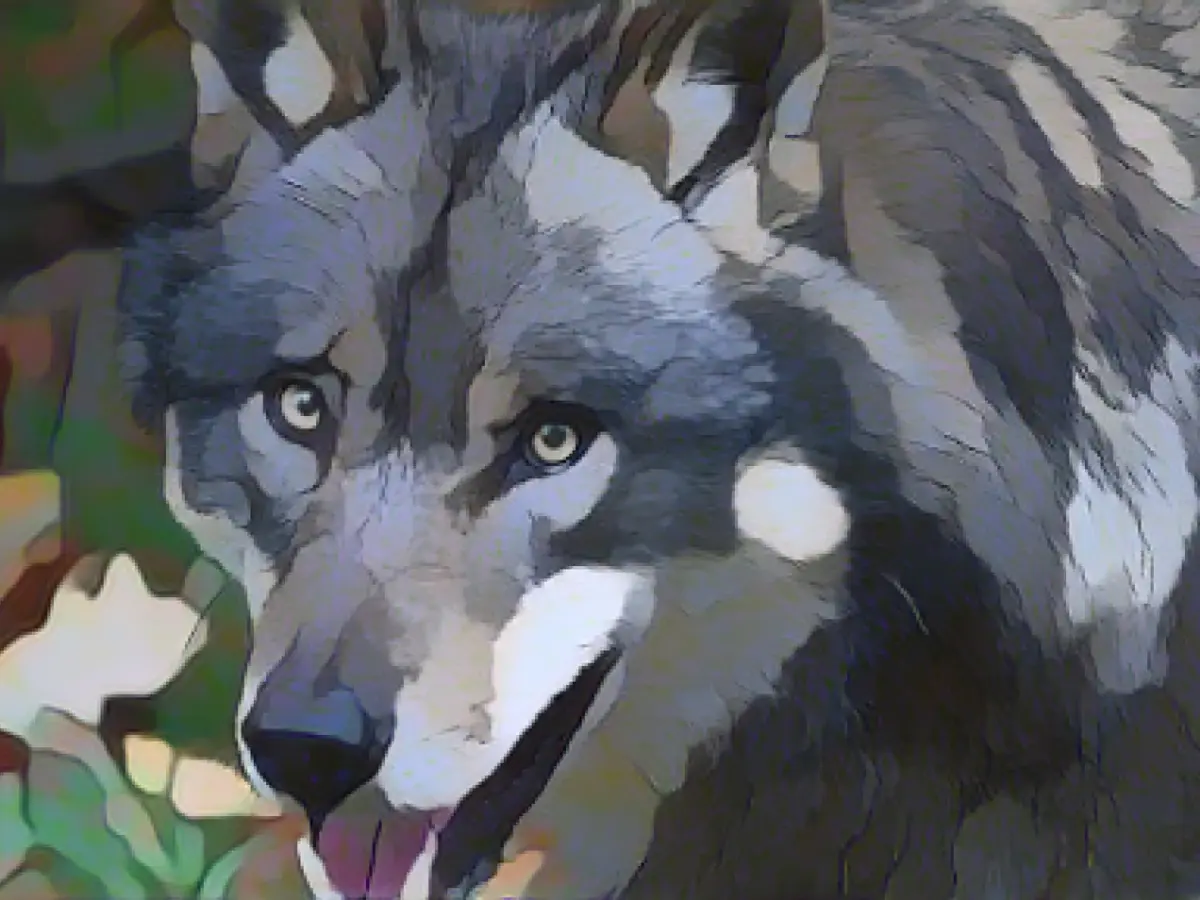Conference of Environment Ministers - Rapid cull for wolves after grazing animal kill to come
Following a decision at the Conference of Environment Ministers, Brandenburg will make it easier to shoot wolves after they have killed grazing animals. Environment Minister Axel Vogel (Greens) announced on Friday that the wolf ordinance would be revised in the near future. However, the wolf as a protected species may still not be shot "arbitrarily".
Particularly hard-hit federal states want to make it possible to shoot wolves more quickly by the start of the 2024 grazing season with uniform state ordinances. Mecklenburg-Western Pomerania's Environment Minister Till Backhaus (SPD) announced talks in Münster on Friday next week. The countries in question are Schleswig-Holstein, Saxony, Saxony-Anhalt, Brandenburg, Mecklenburg-Western Pomerania and Lower Saxony.
At a two-day meeting, the federal and state environment ministers agreed that wolves that have climbed over protective fences and killed livestock can be killed more quickly. It remained unclear how many animals this could affect per year. Federal Environment Minister Steffi Lemke (Greens) said that it would be dubious to give a figure at this stage.
Most wolf packs live in Brandenburg (52), followed by Lower Saxony (39) and Saxony (38).
According to Brandenburg's Environment Minister Vogel, a working group of the six federal states concerned is to draw up proposals for the concrete form of the new regulation. One change is that, unlike previously, a DNA analysis does not have to be waited for before shooting.
In addition, the federal states will have to define areas with an increased incidence of deer predation. In these regions, it should be possible to obtain a shooting permit as soon as the reasonable herd protection has been overcome for the first time and grazing animals have been killed. This should be valid for a period of 21 days after the incident. Shooting should be possible within a radius of up to 1000 meters around the affected pasture.
The Ministry of the Environment in Brandenburg and the State Office for the Environment are now working on the implementation of the regulations, which will then be discussed with the land user and nature conservation associations.
The state farmers' association criticized the proposed regulation and continues to insist that the wolf be included in hunting law. "The waiver of genetic identification is a tiny screw that has been loosened," said Jens Schreinicke, the wolf representative of the state farmers' association. There are still strict local and temporal restrictions that make it difficult to shoot wolves that cause damage.
"We are not regulating the constantly growing wolf population in Brandenburg in this way," said Schreinicke. Livestock grazing will continue to decline. The hunting association is also calling for a targeted reduction in wolf numbers.
Lesen Sie auch:
- Eritrea festival in Stuttgart: large-scale police operation
- FC Bayern aim for first place against Union Berlin
- Protestant church must save money - fight against anti-Semitism
- The decision at the Conference of Environment Ministers has implications for Brandenburg, where Environment Minister Axel Vogel (Greens) announced a revision of the wolf ordinance.
- In a meeting scheduled for next week in Münster, Mecklenburg-Western Pomerania's Environment Minister Till Backhaus (SPD) will discuss the issue with other affected federal states such as Schleswig-Holstein, Saxony, Saxony-Anhalt, and Lower Saxony.
- The federal and state environment ministers agreed at a recent meeting that wolves that have crossed protective fences and killed livestock can be killed more quickly.
- The states of Brandenburg, Lower Saxony, and Saxony are home to the majority of wolf packs in Germany.
- Axel Vogel, the Environment Minister of Brandenburg, has revealed that a working group of the six concerned federal states will draw up proposals for the new regulation.
- Under the proposed changes, a DNA analysis will no longer be required before shooting a wolf, and shooting permits can be obtained in areas with an increased incidence of deer predation.
- The Ministry of the Environment in Brandenburg and the State Office for the Environment are currently working on the implementation of these regulations.
- The state farmers' association has criticized the proposed regulation, stating that the wolf should be included in hunting law.
- Jens Schreinicke, the wolf representative of the state farmers' association, believes that the new regulations will not effectively regulate the growing wolf population in Brandenburg and will continue to harm livestock grazing.
Source: www.stern.de








